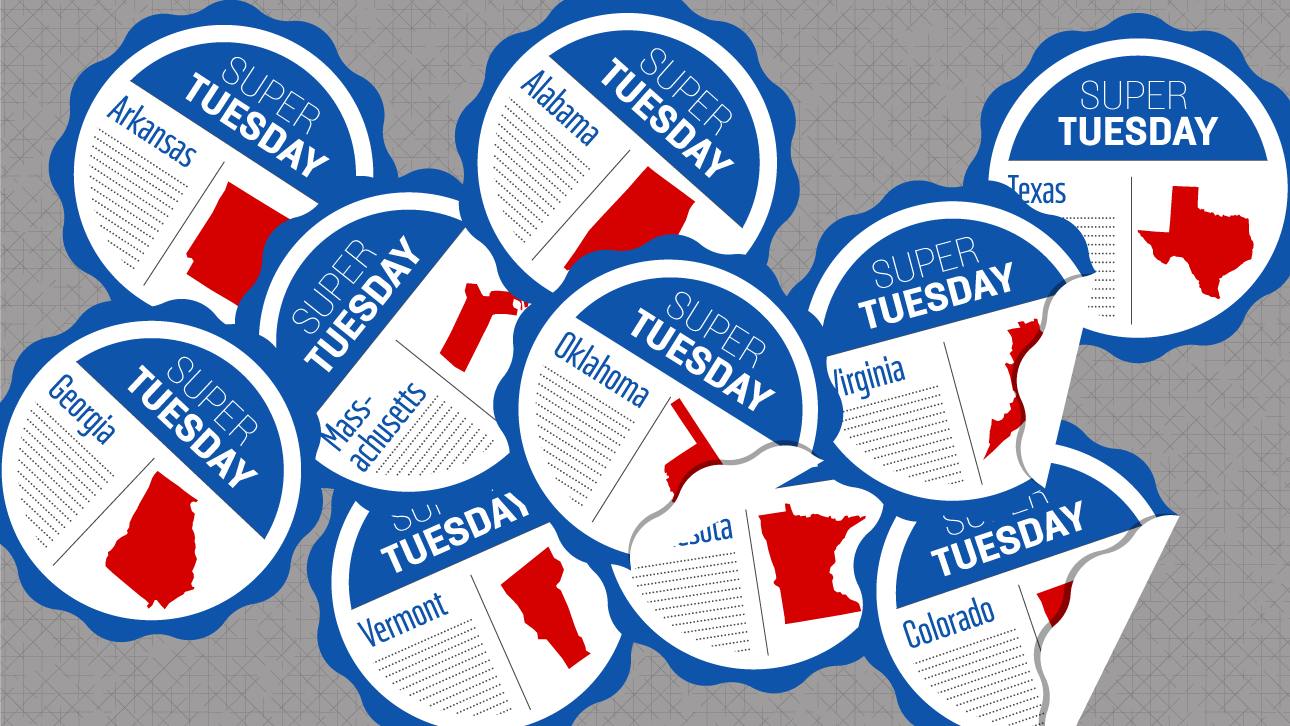Twelve states are voting on Super Tuesday, with a fifth of all Democratic delegates and nearly a quarter of delegates on the Republican side. What states are we looking at?
The Lone Star: Texas
Texas is the only reasonably-polled state on the Republican side where Donald Trump is not currently leading; native son Ted Cruz is leading by anywhere from 1pt to 15pt, depending on the poll. Without a convincing victory in Texas, Cruz has little hope of rebounding from his third-place finish in South Carolina—a state with an ideal mix of evangelicals and very-conservative voters for the Texas senator. Also important for delegate accumulation is Texas’s 20% threshold for proportional allocation of its 47 at-large delegates; Marco Rubio is hovering just under 20% in polling averages. The fewer states in which three or more candidates qualify for proportional delegates, the more difficult it will be to catch Donald Trump later in the primary season.
On the Democratic side, Texas houses the majority of Hispanic voters on Super Tuesday, and Vermont Sen. Bernie Sanders is eager to make inroads after a good showing among Hispanics in Nevada. Especially after his cataclysmic performance in South Carolina—where Hillary Clinton defeated Sanders by seventy-two points among African-American voters—Sanders must prove that he has support outside the community of white liberals.
The Deep South: Alabama and Georgia
As in Texas, Ted Cruz simply must outperform his lackluster showing in South Carolina. While it is quite unlikely that Donald Trump will lose here—he has consistently led by double digits—Cruz must defeat Marco Rubio (whom he is polling behind) and both Cruz and Rubio will be aiming to hit 20% allocation thresholds both at the congressional district level (in Alabama) and the statewide level (in Georgia).
Hillary Clinton is looking to build massive delegate leads in the Deep South by replicating her 48pt victory over Sanders in South Carolina. It will be his job to narrow the gap, for the Democratic proportional-allocation system makes it exceedingly difficult to recover from a large delegate deficit.
The Inland South: Arkansas, Oklahoma, and Tennessee
The playbook on the Republican side is pretty similar to Alabama and Georgia, though Ted Cruz has been making more of a play for Oklahoma. A good night for him would probably include a victory in the Sooner State. On the Democratic side, this is Bernie Sanders’s opportunity to do well in conservative states with fewer non-white voters. He has led some polls in Oklahoma, which could indicate potential in the Great Plains and Appalachia as the campaign continues. If he can’t do better among black voters, Oklahoma is probably a must-win, while Arkansas (due to the Clinton legacy) will be tougher for the Vermont Senator. Tennessee has a larger black population—some 29% of the 2008 primary electorate— but is the sort of state where he needs to be competitive with Clinton to win the nomination.
The Old Dominion: Virginia
At times, Marco Rubio and John Kasich have tried to put a flag down in Virginia. But polls continue to give Donald Trump double-digit leads, and Kasich is flagging in the single digits—leaving New England as his only potential Super Tuesday base. On the Democratic side, Virginia is a fairly good state for Hillary Clinton demographically. Northern Virginia also presents the first set of affluent, liberal suburbs to vote in 2016 (along with the Greater Boston area); it will be interesting to watch Sanders’s results here.
The Caucus States: Alaska (R), American Samoa (D), Colorado (D), and Minnesota
We will probably all be asleep by the time Alaska finishes counting its caucus results, and its libertarian flair can make it unpredictable. There is an unfortunate lack of polling to pin down the loyalties of the six delegates that American Samoa will send to Philadelphia. Colorado and Minnesota have also been polled sparsely, so we have little insight. Minnesota was a key element of Rick Santorum’s brief surge in February 2012, but Marco Rubio has had some strength in (months-old) polling there. If he were to notch a victory, it would probably be here.
On the Democratic side, there is absolutely no path to the nomination for Bernie Sanders without wins here. Colorado and Minnesota both have largely white, liberal primary electorates for Democrats—and caucuses draw more liberal, whiter voters. There is no recent polling, but other data (relative social media presence and search engine interest) indicate strength for Sanders and have been reasonably predictive thus far. If he loses in Colorado and Minnesota, that will likely be part of a sweep for Hillary Clinton—who would likely take every Super Tuesday state except Vermont.
New England: Massachusetts and Vermont
On the Republican side, Marco Rubio and John Kasich will hope to improve on their New Hampshire performances, hoping that Trump has a lower “ceiling” in New England than in other states. His enormous lead—over thirty points in Massachusetts in some polls—would beg to differ. While he has vowed to stay in until Ohio votes on March 15, it would be difficult for Kasich to justify remaining in the race without beating Rubio in New England.
On the Democratic side, Vermont will be a landslide for native son Bernie Sanders, who is tremendously popular in his home state and could get close to 90% of the vote. Massachusetts, however, is a must-win for Sanders where he is trailing narrowly in the polls to Hillary Clinton. If he can’t win a state with Massachusetts’s demographics and liberalism, Clinton will be unstoppable.

